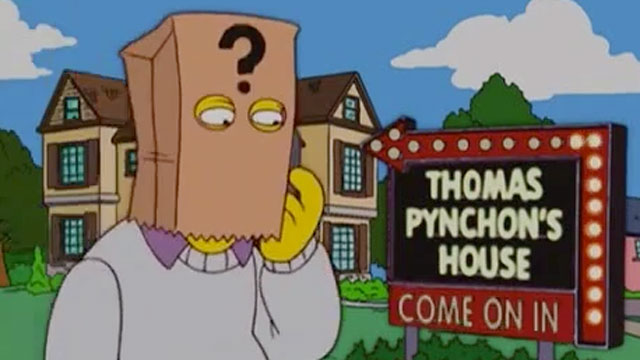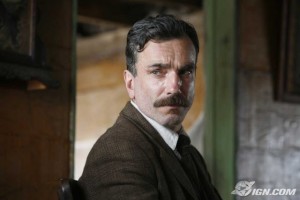When Thomas Pynchon, famously fame-resistant, won the 1973 National Book Award, Professor Irwin Corey accepted on his behalf, offering up his usual high-low mishegoss, the perfect patter to represent the novelist. The amazing Paul Thomas Anderson has based his latest film on the Pynchon novel Inherent Vice. In a new Guardian profile by Mark Kermode, the director is asked about his relationship with the incognizable author. An excerpt:
“One thing Pynchon doesn’t have is a public profile. He is famously camera-shy (even his fleeting Simpsons cameos placed a cartoon paper-bag on his head), and Anderson seems determined not to throw any light on his rumoured involvement with the movie. Although Joaquin Phoenix has stated that Anderson talked regularly with Pynchon, my questions about meeting the author are met with uncharacteristic evasion.
‘He doesn’t meet people,’ Anderson deadpans. ‘I don’t know if he even exists.’
So you don’t know what he thinks of the film?
‘I can only hope that he’s happy it…’
But you didn’t deal directly with him?
‘No, no, no. I just… I just stay out of it. I just try to work with the book, you know, and to treat the book as a collaborator.’
He looks me in the eye, daring me to try again. I mention the rumour (confirmed by Josh Brolin) that Pynchon visited the set and can in fact be glimpsed in the movie.
‘Well, that’s like those stories about B Traven [the mysterious author of Treasure of the Sierra Madre, who believed that ‘the creative person should have no other biography than his works”]. No one ever knew who Traven was, and these pages would supposedly appear under [the director] John Huston’s door with notes and stuff. Or they’d be on the set and look over and there’d be a guy with a hat and sunglasses, and they’d all be going, ‘Is that B Traven? Is that him?’ So it’s all very mysterious to talk about Pynchon, but I tread delicately because he doesn’t want anything to do with all this, and I just have so much respect for him. I hope I can be like him when I grow up.'”



